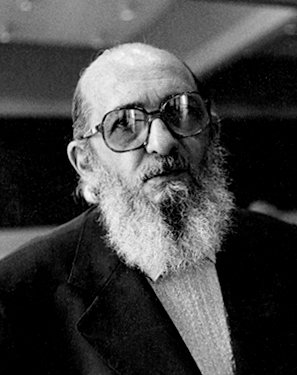
- Home
- About Us
- GO ABROAD
- Partnership Building and Professional Development
- Cuba TIES 10
- WEFLA SECAN 2025
- ISA – Art and Culture 2025
- ISA – University of the Arts Network (RUA)
- Oriente Science and Conscience Convention 2025
- Holguin Internationalization Workshop
- Matanzas International Scientific Convention
- IsDi – FORMA 2025
- Cienfuegos – 3rd Scientific Convention
- Lehman In the Provinces 2026
- Study Abroad
- Independent Study/Life Long Learning
- Partnership Building and Professional Development
- Latest News
- Contact Us
- Languages
About Paulo Freire

“It’s evident that the problems related to education are not just pedagogical problems. They are also political, ethical
and economic problems.”
– Paulo Freire
Paulo Freire (Brazil 1921-1997) was the creator of a philosophical school of thought known as Critical Pedagogy. He elaborated the notion of Popular Education, which situates education in the context of class struggle and socio-political transformation. Popular in this sense refers to education belonging to and coming from the people themselves, rather than to an elite group of educators who pass knowledge down to others. Freire believed that people should be empowered to educate themselves rather than be passive recipients of an educational product. This dialectic model created forms of alternative education for working class people and peasants, allowing them to use education as a tool to resist existing structures of oppression and bring about social change.
Freire’s landmark book, The Pedagogy of the Oppressed (1970), posited that both teachers and students must be aware of the politics that surround education so that students can understand how the educational system supports the status-quo and, in many cases, perpetuates social injustice. Students must be empowered to think critically and question established practices so that they are taking an active part in their own educational process. He critiques the “culture of silence” that rewards people for remaining silent when faced with social and political contradictions, especially those having to do with race and class. Empowering the people to speak negates the idea that they are unfortunate victims unable to help themselves. Freire claimed that it’s not up to society to save people who are marginalized but, rather, to open a space for them to participate actively in the construction of a more just world.
Freire’s work has had a global impact and has influenced the development of educational models and community outreach programs around the world. He advanced the notion that education should be based on mutual respect between the educator and students, and should allow for dialogue and praxis. What students learn in the classroom must be applied to what they do in daily life, so that education becomes a tool for reshaping reality. The curriculum must be modified to allow for critical examination and change. He challenged educators to move away from the idea that education is merely a transfer of information. Instead, they should teach in a way that encourages students to experience “real acts of knowing.” Much of what we know today as university extension programs reflects Freire’s belief that education never ends. Whether people are enrolled in courses for credit or for their own personal enrichment, they should feel empowered to use their education in ways that will transform the world they live in.